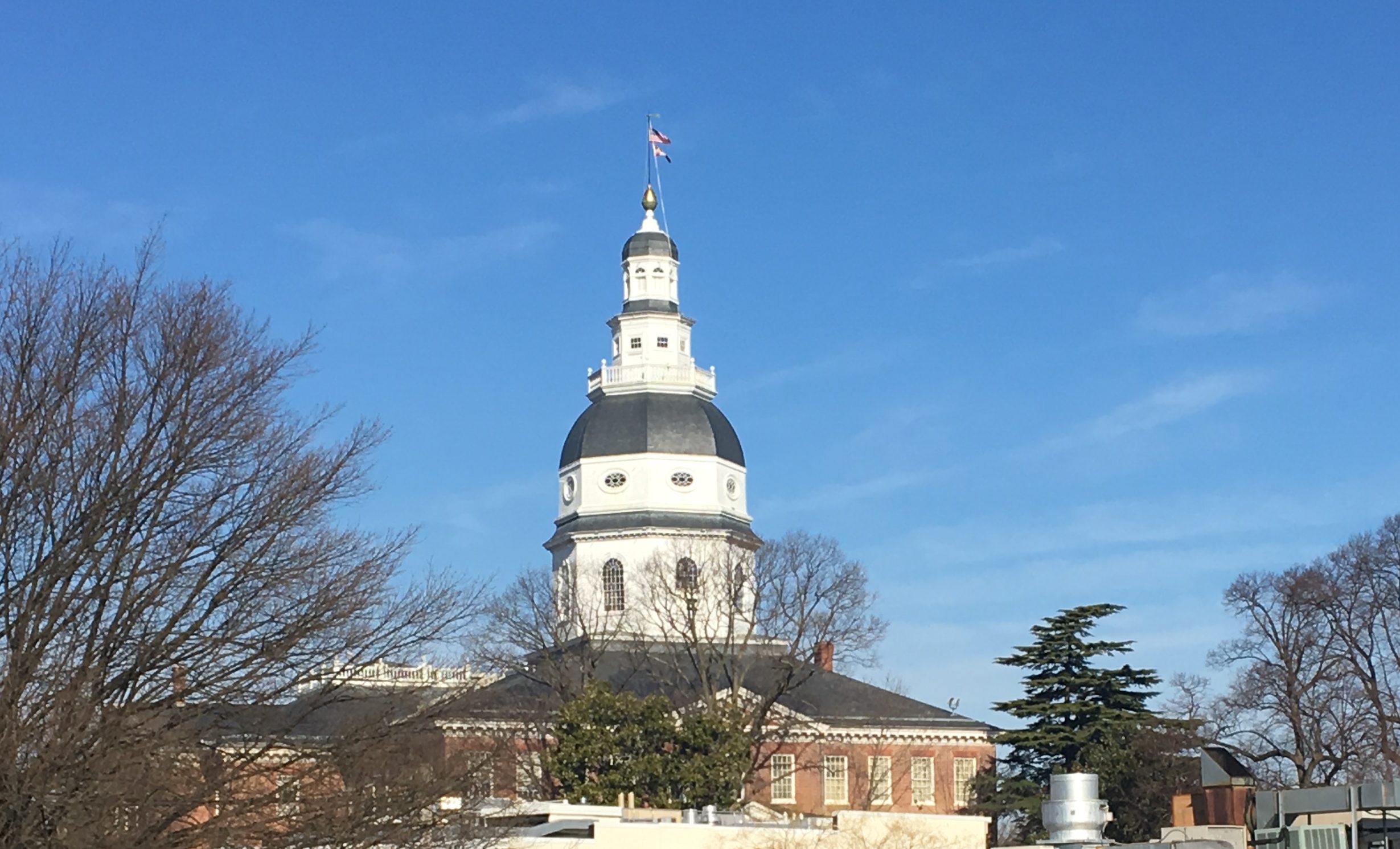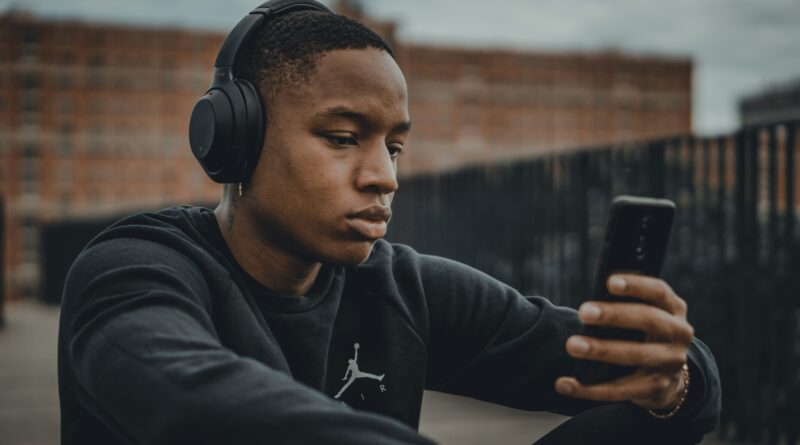As young Americans struggle with mental health, online support surges – including in Maryland
By MAX SCHAEFFER
Adolescents across the country have increasingly suffered from anxiety and depression over the last 10 years, and school officials in Prince George’s County noticed the same trend locally.
So when the county’s public school system needed to support its struggling students, it did what schools and young people across the nation are doing — it turned to an online service.
Funded by the statewide effort to bolster youth mental health, the county partnered with Hazel Health, which specializes in providing online counseling to school-age children.
“I think accessibility is huge,” Emily Pasco, the school district’s mental health coordinator, said of the partnership. “That’s historically been a barrier for mental health services — transportation is an issue.”
Supporters of online mental health services argue that they offer a convenient option in an era when providers are in short supply. According to a 2024 federal study, more than a third of the nation’s residents live in an area where there aren’t enough mental health professionals.
Enter online services such as Hazel, Gaggle, Counslr and Cope Notes.
“We are not a silver bullet; we are not going to solve everyone’s problems, but we can be a great gap-fill,” said Andrew Post, Hazel’s president.
Online mental health services surged in popularity during the coronavirus pandemic when most in-person options were shut down, and it has remained popular in the years since.
With the online medium evolving every day, there is no consensus about it among psychological researchers, but various studies have shown online interventions can do some good.
For example, a 2024 study from the National Institutes of Health found there were “promising results regarding the effectiveness of online interventions in young people, especially for symptoms of anxiety and depression and for training of social functioning.”
Megan Taylor, an independent licensed clinical psychologist from Northern Virginia with online and in-person therapy experience, said the online option can sometimes feel safer to patients than seeing a therapist in person.
Yet the online medium makes it easier for unlicensed or unreliable providers to provide services they aren’t qualified to provide, said Taylor, who has extensive experience with youngsters with autism.
“I feel really passionate about the fact that there are many therapists, who advertise themselves as being neurodiversity affirming or specializing in autism, but really haven’t had that training,” Taylor said.
Despite such concerns, online therapy is expected to grow as an option for troubled young people nationwide. Zion Market Research projects the global market for online therapy for teens to more than triple from 2023 through 2032.
That being the case, here’s a closer look at several online mental health care options available to young people today:
Hazel
Hazel was one of the big winners in the state’s first round of grants from its new youth mental health program, receiving $2.75 million in Prince George’s County, $1.5 million in Baltimore City and smaller grants in Charles and St. Mary’s counties.
Students in Prince George’s County and elsewhere access Hazel’s counselors through video conference, either at school or home. Post said the medium offers limitations as well as benefits for the students who access it.
“We are raising a generation of children who are very comfortable, for better or worse, with technology,” Post said. “This construct of, ‘I’m going to drop you off at this office and I’ll pick you up in an hour,’ is a little jarring, compared to, ‘I’m going to hand you this iPad and you’re going to see this person and talk to them.’”
Despite being a proponent of telehealth therapy, Post acknowledged for severe cases, in-person treatment always has to be an option for young people.
Prince George’s County — like Miami-Dade County, Florida, where Post taught and served as an administrator — is a majority-minority community where over half of the student population qualifies for free and reduced lunch. This comes with additional mental health challenges for students to navigate.
In 2024, Prince George’s County saw 113 homicides.
“Gun violence is a significant issue,” Pasco said. “Students being affected by either witnessing gun violence, or being affected by someone that they know being a victim of gun violence.”
The top two most common reasons for referral, according to Pasco, are depression and anxiety, consistent with national trends.
One way Hazel looks to serve the unique needs of communities like Prince George’s County is to only use providers who are licensed in the state.
“Number two is making sure that our population group truly reflects the population that we serve,” Post said.
Two out of every five Hazel therapists fluently speak a language other than English, according to Post.
Gaggle
Like Hazel, Gaggle — which began in 1999 as an early email communication system between teachers and students in schools — provides online therapy. The company has evolved over the last 25 years, first into an online safety management platform and now a provider of teletherapy.
Gaggle’s safety management operation is still the primary service it provides to school districts, with over 1,500 districts using it. Just over 100 school districts use its telehealth service, although no Maryland school district uses it.
Growing the company’s telehealth operation is a company priority, said Heather Durkac, Gaggle’s chief innovation officer.
“Gaggle started and is involved with protecting those ‘digital hallways’ — what kids were emailing, sending, sharing, uploading, everything that was on district-provided devices or accounts,” she said.
Increasing concerns about mental health and self-harm — which company officials noted through its safety monitoring service — inspired the company to offer teletherapy as well.
“I used to talk about [during training with school districts] if students would send something like a suicide note or share suicidal thoughts,” Durkac said. “Now I talk about it in a position of when students are sharing those suicidal thoughts or a suicide note. That really just compelled us to do something more.”
The company made 20,000 phone calls to school districts for situations their safety analysts deemed an imminent threat for a student, and over 400,000 emails to school districts for concerns of a lower level, according to Durkac.
Durkac shared a story of Gaggle’s intervention when a student wrote a suicide note on a Google Doc on his school-issued Gmail account, which school officials saw because Gaggle’s safety management system gave them access to it. Gaggle contacted the school, and officials there got the student’s family and police involved. The student was found at the local train tracks and taken to a hospital.
With a combination of Gaggle’s services, a school district could continue to work with the student to help prevent a similar situation.
“If it is one of those districts that has both services, they can choose to move them right into our Gaggle therapy services. If not, they have other resources,” Durkac said.
If one decides to access Gaggle’s therapy services, the company employs a team of licensed therapists who mostly work online part-time while maintaining their own practice or serving as a supervisor.
Counslr
Another of the most widespread online counseling providers is Counslr, a service that partners with large companies, schools, and communities. Counslr is partnered with school districts across 11 states, but not Maryland — although it works with Child Trends, a Rockville-based nonprofit that researches child well-being.
Counslr offers text-based mental health support with a licensed mental health professional at any hour of the day. Students complete a basic intake form and are matched with a professional who is supposed to best fit their needs.
“We are particularly effective at what we call ‘reaching the traditionally unreachable,’” Counslr co-founder and CEO Josh Liss said.
He said Counslr’s text-based method helps people avoid typical hurdles like cost, inconvenience or negative stigma around getting help.
“The majority of the sessions on our platform deal with relationship issues,” Liss said. “Very challenging to have a video session, when the person you want to talk about is lying in the bed next to you.”
Counslr is free for the students or members of its partner school districts or organizations. That entity pays Counslr for its services to be accessible to its students or members.
Liss said he is confident in Counslr’s ability to help its users, but recognizes its limits.
“We very intentionally do not provide therapy,” Liss said. “Our counselors don’t diagnose, they don’t treat and they don’t prescribe medication.”
When someone requires a more intensive form of care, like therapy, the company works with the school counseling office to facilitate that, Liss said.
Cope Notes
Cope Notes founder Johnny Crowder said he grew up with “severe mental illness” and had always resisted seeking treatment.
Once he got older and began to study psychology and neuroscience, that aversion to therapy turned to a curiosity and passion for helping people.
“I started texting people health education content from my phone,” Crowder said, “and eventually started building it into something more nuanced.”
This is how Crowder developed Cope Notes, a subscription-based service that sends users a text at a random point in the day.
The texts are written by a peer, or someone with experience with whatever challenge their text references, then reviewed by Cope Notes’ clinical oversight panel of mental health professionals before being sent out.
One of the biggest challenges is finding a text that will be general enough to apply to a range of subscribers but specific enough to help. The service is anonymous, so the providers aren’t aware of who they’re texting.
“We’re serving people, let’s say one of them is a rural teenager with bipolar and one person is like an urban senior with no mental health conditions,” Crowder said. “How the heck do you craft a content library that is applicable across all of those demographics, if you don’t have that information?”
Answering this question has become a big part of the company’s content review process.
No two people ever get the same text at once, and the text comes through at a random time, although the company is working on features that will allow people to personalize their experience, according to Crowder.
The current Cope Notes pricing model allows someone to purchase an individual subscription for an annual cost of just over $100. Cope Notes also offers group subscriptions for companies or schools.
Crowder recognizes Cope Notes is not a replacement for therapy. He said he feels Cope Notes is a resource that can be used to get someone ready for therapy, or provide consistent support to someone who has finished their therapy.
“I would say it’s a great step up or step down [from therapy],” Crowder said.

Capital News Service is a student-powered news organization run by the University of Maryland Philip Merrill College of Journalism. With bureaus in Annapolis and Washington run by professional journalists with decades of experience, they deliver news in multiple formats via partner news organizations and a destination Website.

